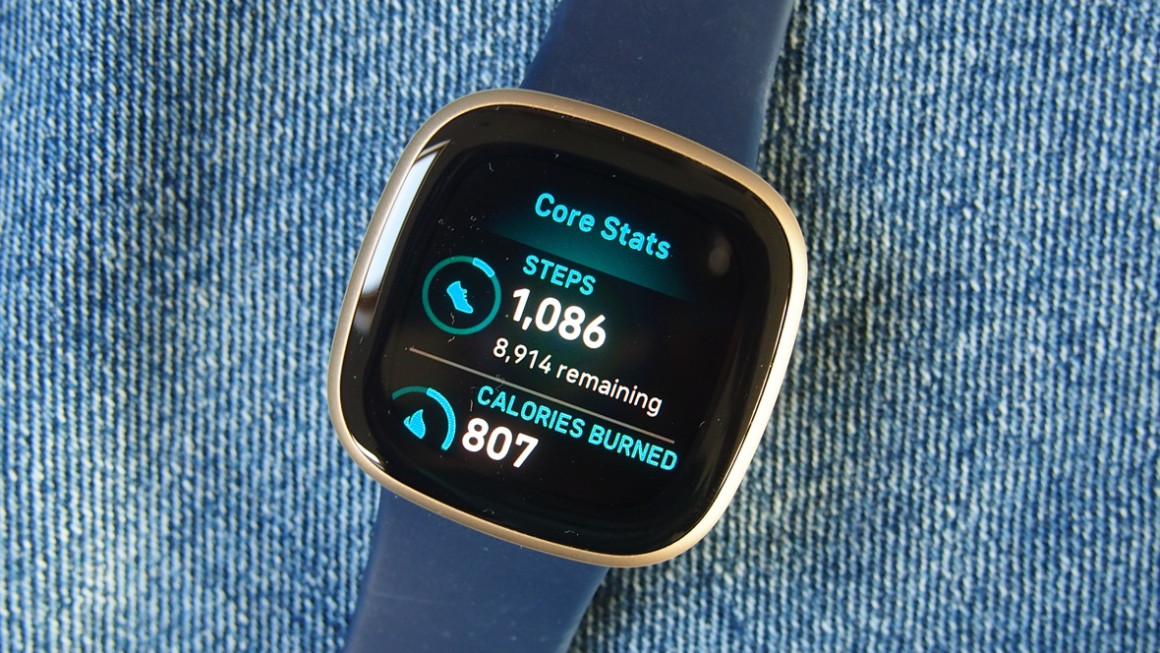Have you looked at your Fitbit after a vigorous workout session and thought, “Is this really accurate?”
You’re not alone. Millions of people around the globe trust their Fitbits to keep track of their daily calorie expenditure.
I’m here to answer the burning question: How accurate is Fitbit’s calorie count?
So, whether you’re on a weight loss mission or just intrigued by your smart band, this article will thoroughly explain how your Fitbit calculates calories burned.
But 1st, let’s understand how calorie tracking works –

Understanding How Calorie Tracking Works?
Calorie tracking refers to monitoring the number of calories you consume through food and drink and the number of calories you expend through physical activity.
This information is crucial for individuals looking to maintain, lose, or gain weight, as it allows them to balance the calories they consume and burn.
Achieving an appropriate caloric balance is essential for overall health and fitness. Consuming too many calories without burning enough can lead to weight gain while burning more calories than you consume can result in weight loss.
By tracking their calorie intake and expenditure, individuals can make informed decisions about their diet and exercise habits to achieve their desired weight and fitness level.
How do Fitbit devices calculate calories burned?
Fitbit devices use a combination of factors to estimate the number of calories burned throughout the day. These factors include:
- Basal Metabolic Rate (BMR): The number of calories your body needs to maintain basic physiological functions such as breathing, circulation, and cell production while at rest. BMR is influenced by age, gender, weight, and height. Fitbit devices use this information to estimate the calories you burn even when you’re not physically active.
- Physical Activity: Fitbit devices track your physical activity throughout the day, including steps taken, distance traveled, and active minutes. Using algorithms that consider your personal information and the intensity of your activity, the device estimates the number of calories you burn during exercise and daily activities.
- Heart Rate: Fitbit devices with built-in heart rate monitors use your heart rate data to estimate calories burned accurately. By measuring the intensity of your activities through your heart rate, the device can better estimate energy expenditure during exercise and other activities.
By combining these factors, Fitbit devices provide users with an estimation of their total daily calorie expenditure, helping them make informed decisions about their diet and exercise habits to achieve their health and fitness goals.
How Fitbit Calculates Calories Burned?

Fitbit devices employ a combination of factors to estimate the number of calories burned throughout the day. These factors include:
Basal Metabolic Rate (BMR)
BMR is the calories your body needs to maintain basic physiological functions such as breathing, circulation, and cell production while at rest. Fitbit uses your age, weight, height, and gender to estimate your BMR, which is the foundation for calculating calories burned.
Heart Rate Monitoring
Fitbit devices with built-in heart rate monitor use your heart rate data to estimate calories burned accurately. By measuring the intensity of your activities through your heart rate, the device can better estimate energy expenditure during exercise and other activities.
Personal User Data
Fitbit devices consider personal user data, such as age, weight, gender, and height, to accurately estimate calories burned during physical activity.
Factors That Influence Accuracy
Several variables can impact the accuracy of Fitbit’s calorie burn estimation. These include:
Heart Rate Monitoring and BMR Calculations: Fitbit devices use heart rate monitoring and BMR calculations to estimate calorie burn. However, inaccuracies can occur in these measurements, leading to discrepancies in the final estimation:
Heart rate monitoring inaccuracies: Device positioning, skin tone, and intense physical activity can affect heart rate monitoring accuracy. Additionally, individual variations in heart rate can lead to overestimations or underestimations of calories burned during exercise.
BMR calculation inaccuracies: BMR calculations are based on general formulas considering age, weight, height, and gender. However, individual differences in metabolism and body composition can result in variations in BMR, which these formulas may not accurately capture.
User-Entered Data
Discrepancies caused by user-entered data can affect the accuracy of Fitbit’s calorie burn estimation. Inaccurate or outdated information, such as incorrect weight, height, or age, can lead to overestimations or underestimations of calorie burn[
Overestimation or Underestimation of Calorie Burn
Fitbit devices may overestimate or underestimate the calorie burn for specific activities due to differences in intensity, duration, and individual factors.
For example, Fitbit devices may overestimate calorie burn for activities like cycling or weightlifting while underestimating it for exercises like swimming or high-intensity interval training (HIIT)
How to Improve Accuracy
To ensure the most accurate calorie burn tracking with Fitbit, consider the following tips:
- Update your personal information: Regularly update your information (age, weight, height, etc.) in the Fitbit app to ensure accurate BMR calculations.
- Wear the device correctly: Properly wear the device on your wrist, ensuring a snug fit for accurate heart rate monitoring.
- Supplement Fitbit’s tracking: Combine Fitbit’s tracking with additional tools, such as food diaries or other fitness trackers, to get a complete picture of your calorie burn.
To supplement Fitbit’s tracking for a more complete picture of calorie burn, consider the following suggestions:
- Use a food diary app: Track your calorie intake with a food diary app, which can help you monitor your diet and maintain a balance between calories consumed and burned.
- Combine with other fitness trackers: Use other fitness trackers or apps that may offer additional features or more accurate tracking for specific activities, such as swimming or cycling.
- Consult a professional: Work with a nutritionist or personal trainer to develop a personalized fitness plan considering your unique needs and goals.
Final Thoughts
I hope by now you’ve understood how calorie tracking works and how accurate Fitbit is in terms of tracking it.
That’s all for now.
Feel free to reach out in the comments below if you’ve got anything else to ask related to Fitbit tracking.



